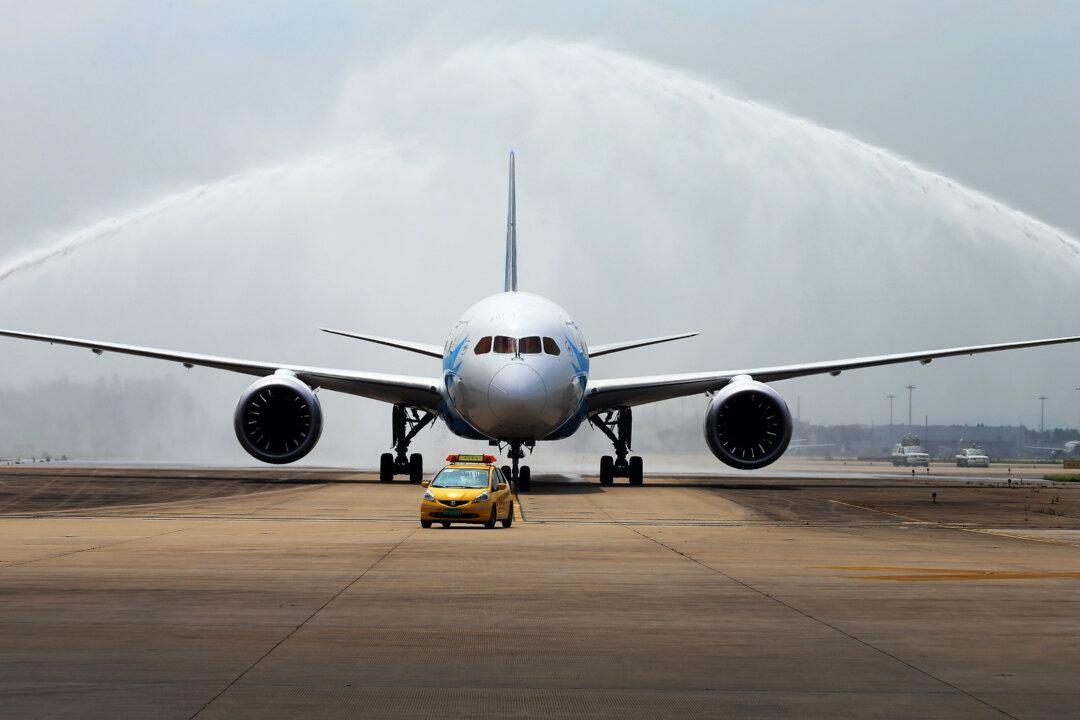Explosions of anger over notorious delays at airports in China are a thing of Internet legend: furious Party officials smashing computers against glass doors in anger, or young women getting into arguments with flight attendants.
Last week, in an attempt to alleviate the congestion, airports in eight major Chinese cities enacted a new policy that would allow commercial flights to depart at their scheduled time regardless of the weather conditions at their destination—the effect will be that flights actually leave on time, but one outcome is that they will simply use that time at the other end, in the sky, circling while waiting for an opportunity to land.
This will cost airlines more money in the extra fuel, add stress and pressure on crews, and could potentially be unsafe, too.
“The United States used to operate somewhat like that, 20-30 years ago,” said Kirk Koenig, President of Expert Aviation Consulting, in a telephone interview with Epoch Times. “It was left up to the individual airline and pilot. But you have to become more conservative on those things.”
“Unrestricted take-off,” the coined term for the new measure, will now account for half of the mainland’s air traffic. The Beijing News suggested it would increase on-time departures by 15 to 20 percent.
Aviation experts and travelling citizens are still skeptical, however.
Caixin, a business magazine in China, suggested that spending the time in the air could be much riskier and could cause panic, as well as being unsafe.
Critics also say that the new policy does not address the fundamental problem, which is that airspace is heavily limited in China. “The country’s air force controls airspace and allots only 20 percent to civil aviation,” writes Jasmine Wong of The Washington Post. The remaining airspace is reserved exclusively for military aircraft.
In recent years, China’s aviation industry has grown quickly, with the three biggest airlines planning on adding 273 or more planes in the next three years. These new additions will worsen the traffic congestion.
A Chinese netizen posted on the Sina Weibo, a Chinese analogue of Twitter: “First of all, the fundamental weakness is the highly inefficient management and operation of the Civil Aviation Administration! How come the United States Air Force can operate efficiently and balance well with its civil aviation? Chinese aviation problems have to do with administration, and it’s a bureaucratic waste of resources!”




